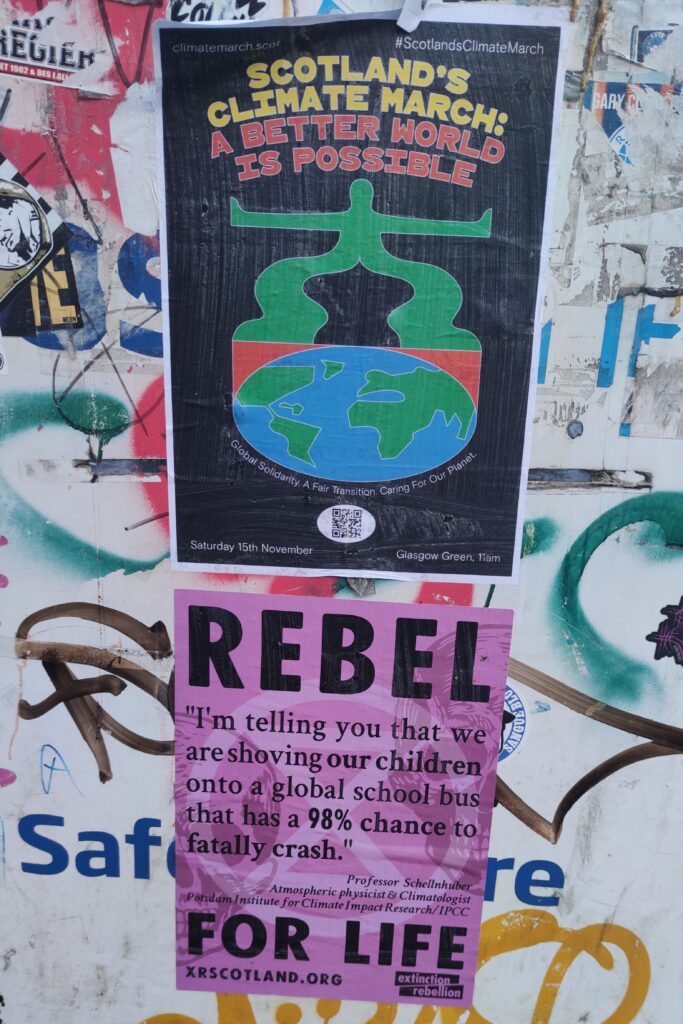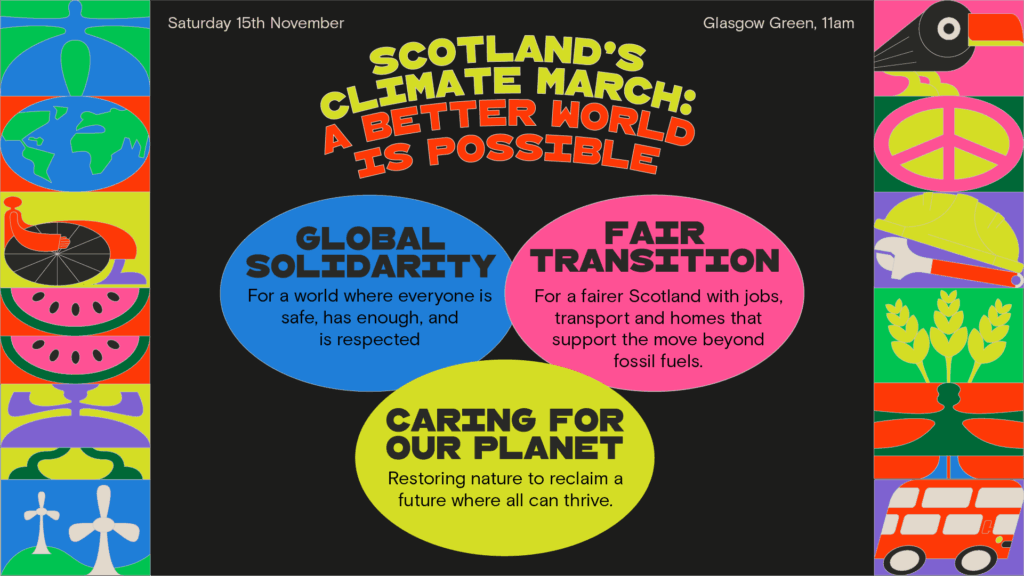COP30 & Fighting the Climate Crisis Across the World
November 14, 2025
Martha Lewis-Fairbrother considers the United Nations Climate Change Conference of the Parties (COP) four years on from COP26 in Glasgow.

The fact that COP exists at all is, perhaps, something we climate activists should be excited about, and proud of. The global recognition of the urgency to drastically reduce emissions was, and continues to be hugely important, as tackling climate change is not something a single country, or a single government, can do.
The decision to hold COP30 in Belém this year has been somewhat controversial. There are concerns that due to the remote location poorer countries, often those most at risk of climate-related devastation, may be priced out. For those who are able to attend, a new road has been cut through part of the Amazon to provide for the increase in traffic. Since deforestation of the Amazon began in earnest in the 1970s, an area the size of Wales has, on average, been destroyed every year between then and 2005. The plight of the loss of biodiversity, indigenous peoples and communities, as well as what has been termed ‘the lungs of the planet’ has had an enormous impact on the global shift in attitude concerning climate change. Can further deforestation ever be justified?
Three of the world’s biggest emitters – the US, China and India – have not, as of the end of October, committed to sending their leaders to the summit. This is perhaps not surprising given Trump’s claim that climate change is “the greatest ever con job”. The danger of the Trump Administration in the face of climate disasters is something which ought to concern us all. Along with an adjournment proposed by Saudi Arabia, the US government last month used threats of tariffs to prevent a deal being made which would have cut global shipping emissions – a somewhat radical change which would have seen the first global industry to adopt internationally agreed upon limitations.
This attitude infects COP. At the summit held in Glasgow in 2021 there were 500 delegates with fossil fuel backgrounds. At COP28 a few years later this number rose to 2456 according to data from Kick Big Polluters Out.
When not outright denying climate change, western leaders, including in the US and the UK, often shift the blame onto China, India and Brazil “..as if it was not our governments and our multinationals that pushed a model of export-led development that made all of this possible”. This quote is taken from Naomi Klein’s ‘Hot Money’, in which she goes on to say “The victims in all this are the regular people: the workers who lose their factory jobs in Juárez and Windsor, the workers who get the factory jobs in Shenzhen and Dhaka… and the Chinese villagers whose water is contaminated by one of those coal plants we use as our excuse for inaction, as well as the middle class of Beijing and Shanghai whose kids are forced to play inside because the air is so foul.” Klein paints a bleak picture of the international degradation created by the free-market fundamentalism that drives leaders such as Trump. It is vital that COP remains committed to the attitude of mutual responsibility to tackle such terrifying and devastating hegemony.
Article 2 of The Paris Agreement states that the treaty “aims to strengthen the global response to the threat of climate change, in the context of sustainable development and efforts to eradicate poverty”. The Implementation Plan from Sharm el-Sheikh especially acknowledges that “climate change is a common concern of humankind… [parties should] respect, promote and consider their respective obligations on human rights” specifically mentioning the rights of indigenous peoples, migrants, children, persons with disabilities, gender equality and intergenerational equality. The idea that progress must mean progress for all, that those most vulnerable must be held in mind during negotiation and implementation alike is baked into the legal documentation of the COPs.
However, this fails to be represented in actions taken by those with the most power so far. If current progress made toward reducing emissions continues then they will have declined by 10% by 2035. However, in order to keep the temperature below 1.5°C emissions need to decline by 43% by 2030.
Nationally Determined Contributions, or NDCs are plans that each party must submit several months before the COP summit opens for that year. According to the 2025 NDC synthesis report, only 64 parties submitted this year. That accounts for about 30% of global emissions. One of the insights from the report states “Parties are laying out clear stepping-stones towards net zero, although acceleration of action is still needed”. Keeping emissions at 1.5°C is now considered to be impossible.
At COP29, some of the world’s richest countries committed to give developing nations at least $300 billion yearly. But that is far less than they’ll need. That agreement also “secured efforts… to scale up finance to developing countries, from public and private sources, to the amount of USD 1.3 trillion per year by 2035.” A hope, but not a solid commitment.

Can we expect much better this year? Unfortunately, not. Hopefully, here in the UK, we might see commitments to changes in agriculture, insulation and transport at home, as well as much more ambitious and radical ways of funnelling money towards ensuring a sustainable transition to industrialisation in the global south, from where most future emissions will come. These are the main things to look out for at COP this year.
Climate change is a global challenge. None must ignore it because none will escape it. As activists, we must remind our leaders that COP was built on the understanding of mutual responsibility, and has always considered the imbalance brought about by colonialism and, more recently, US financial hegemony. It is these two dangers which we must prepare to face as we continue to champion the rights of all people and the rights of our planet.
